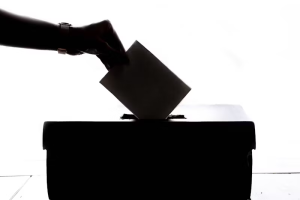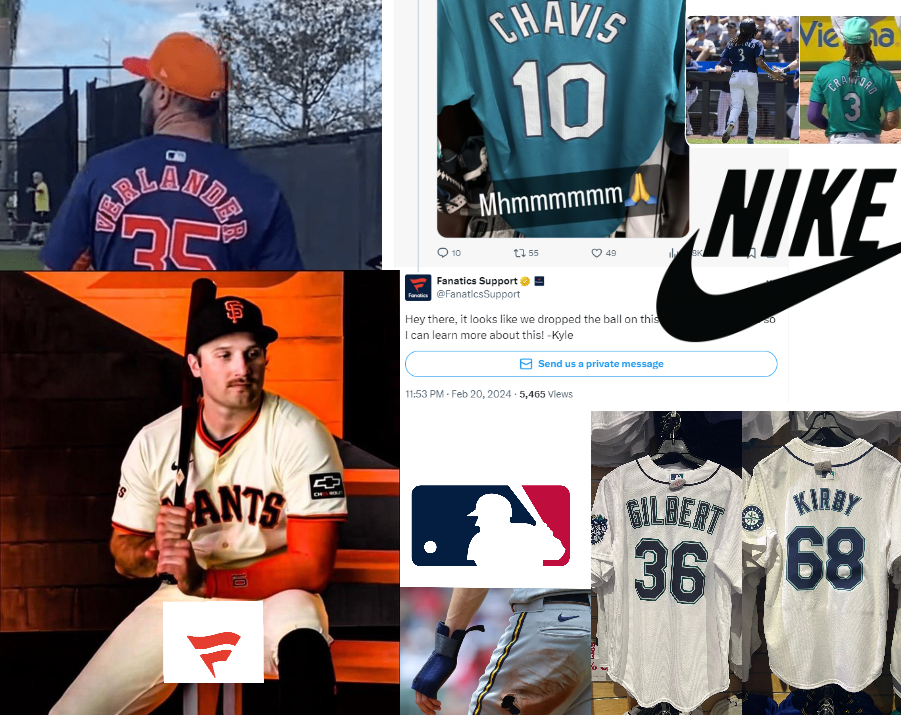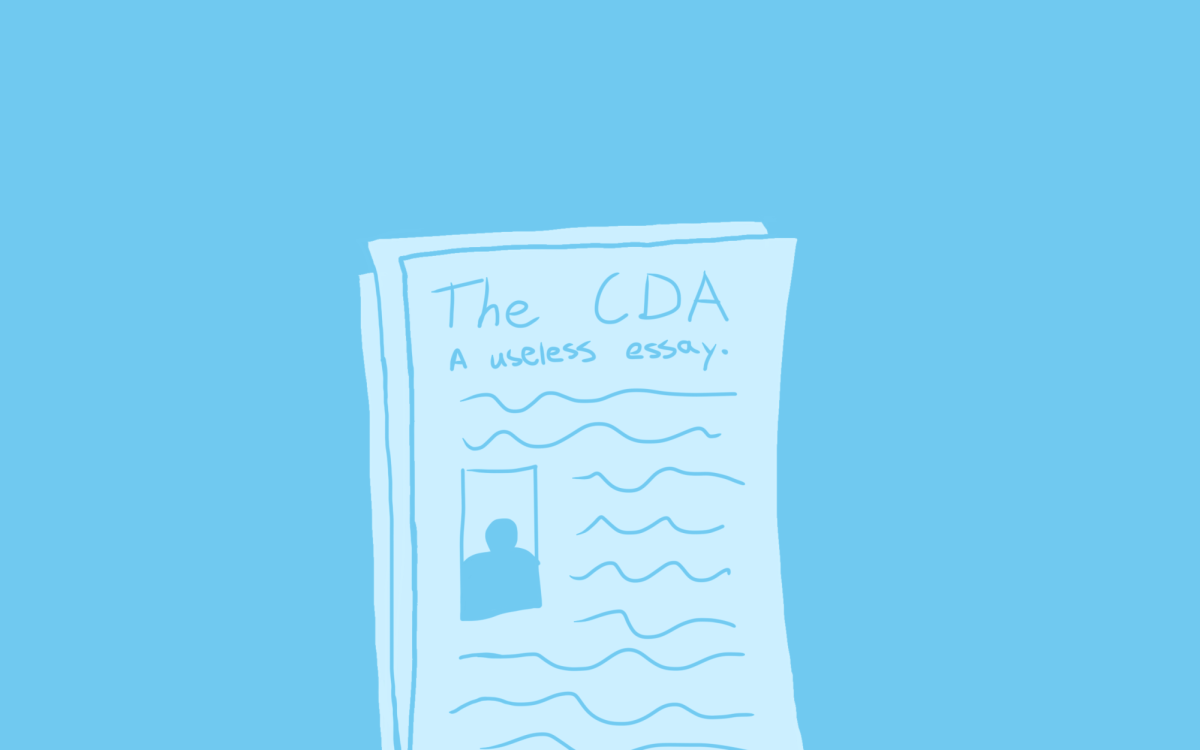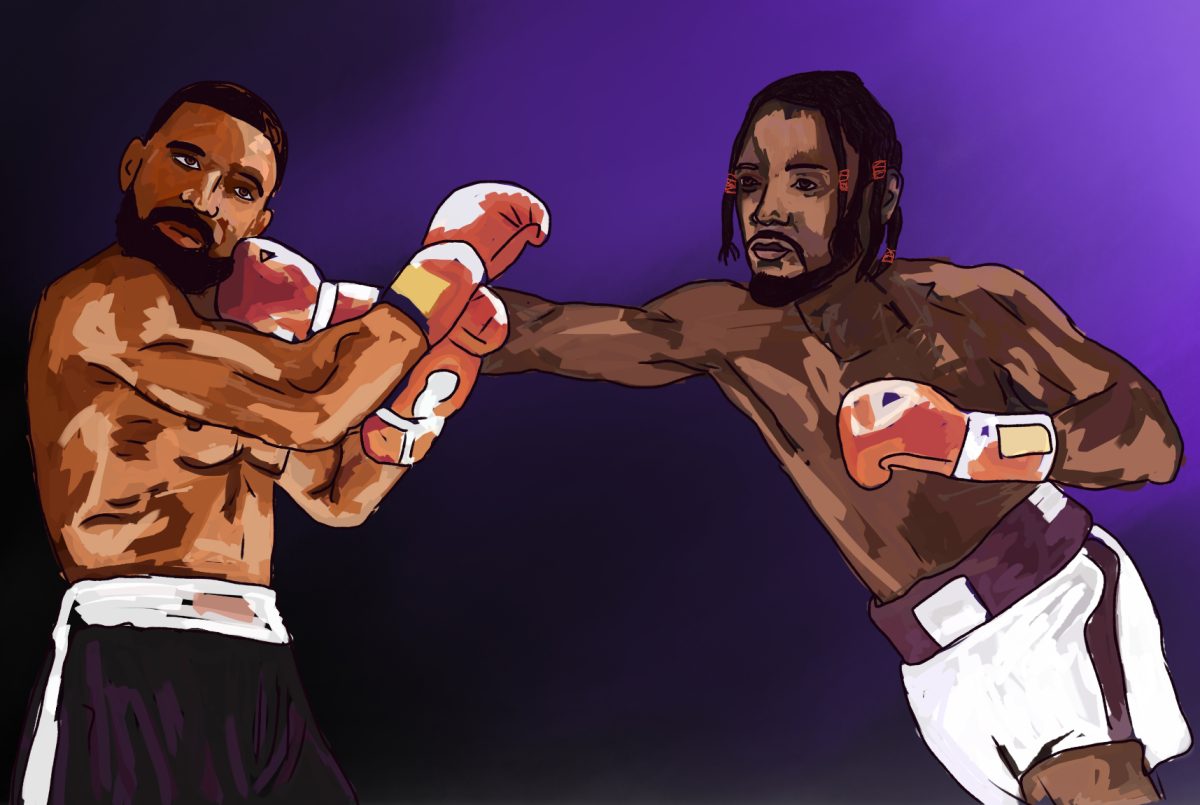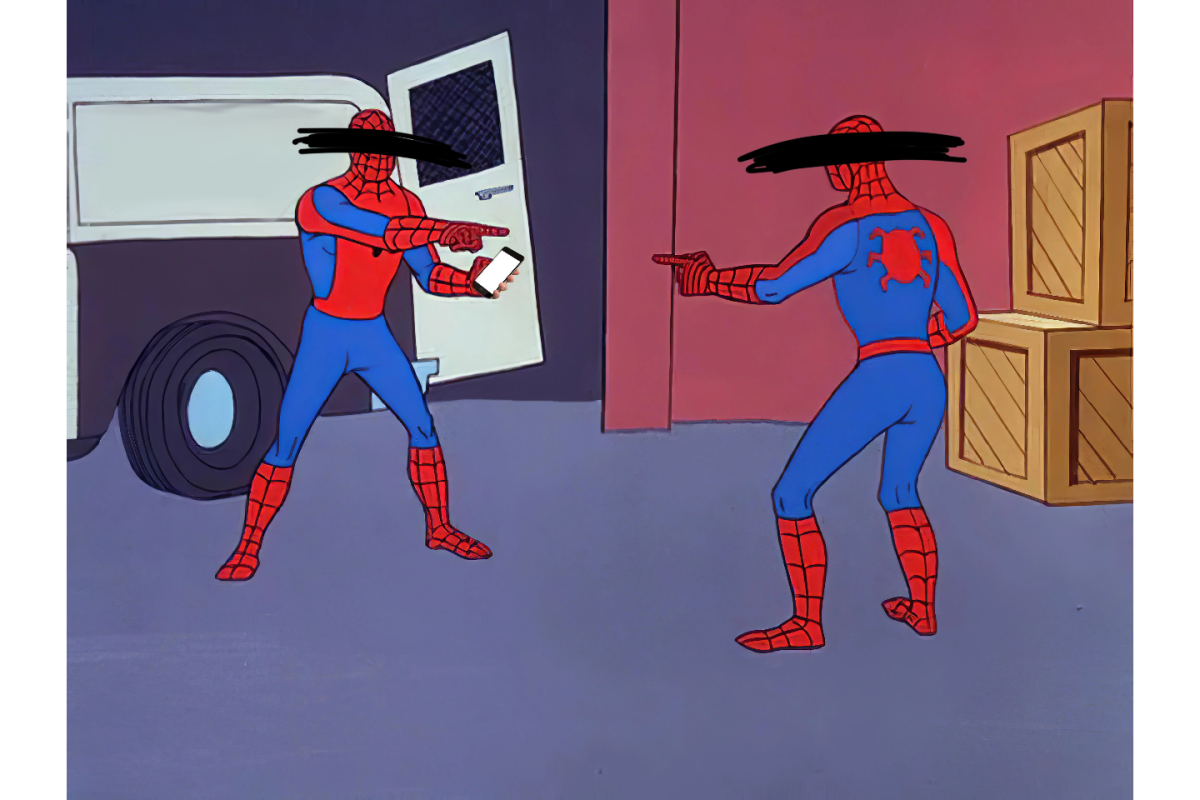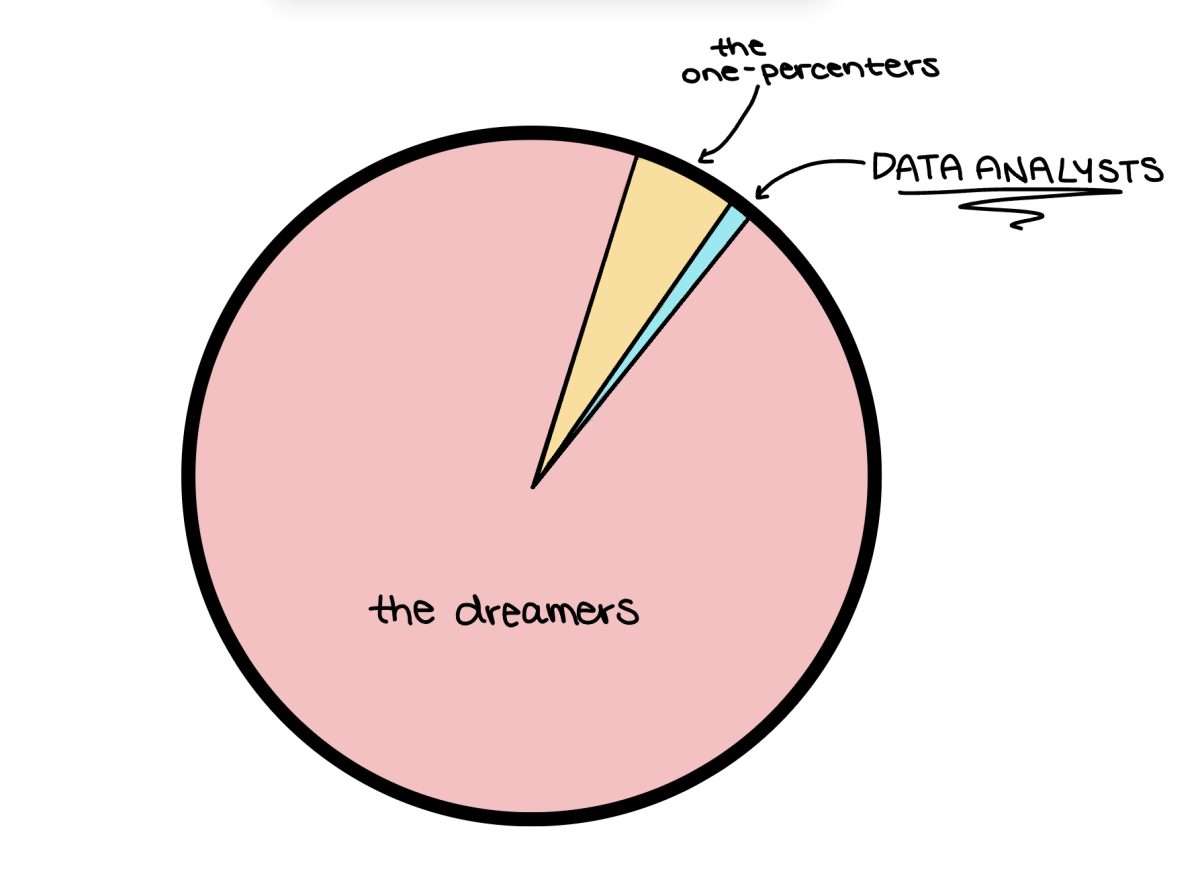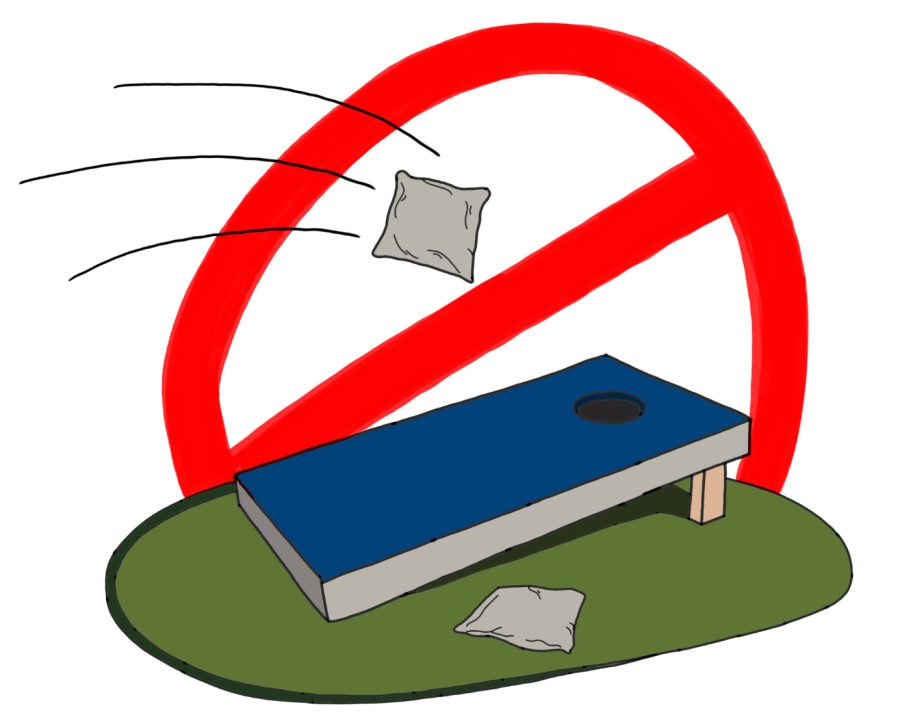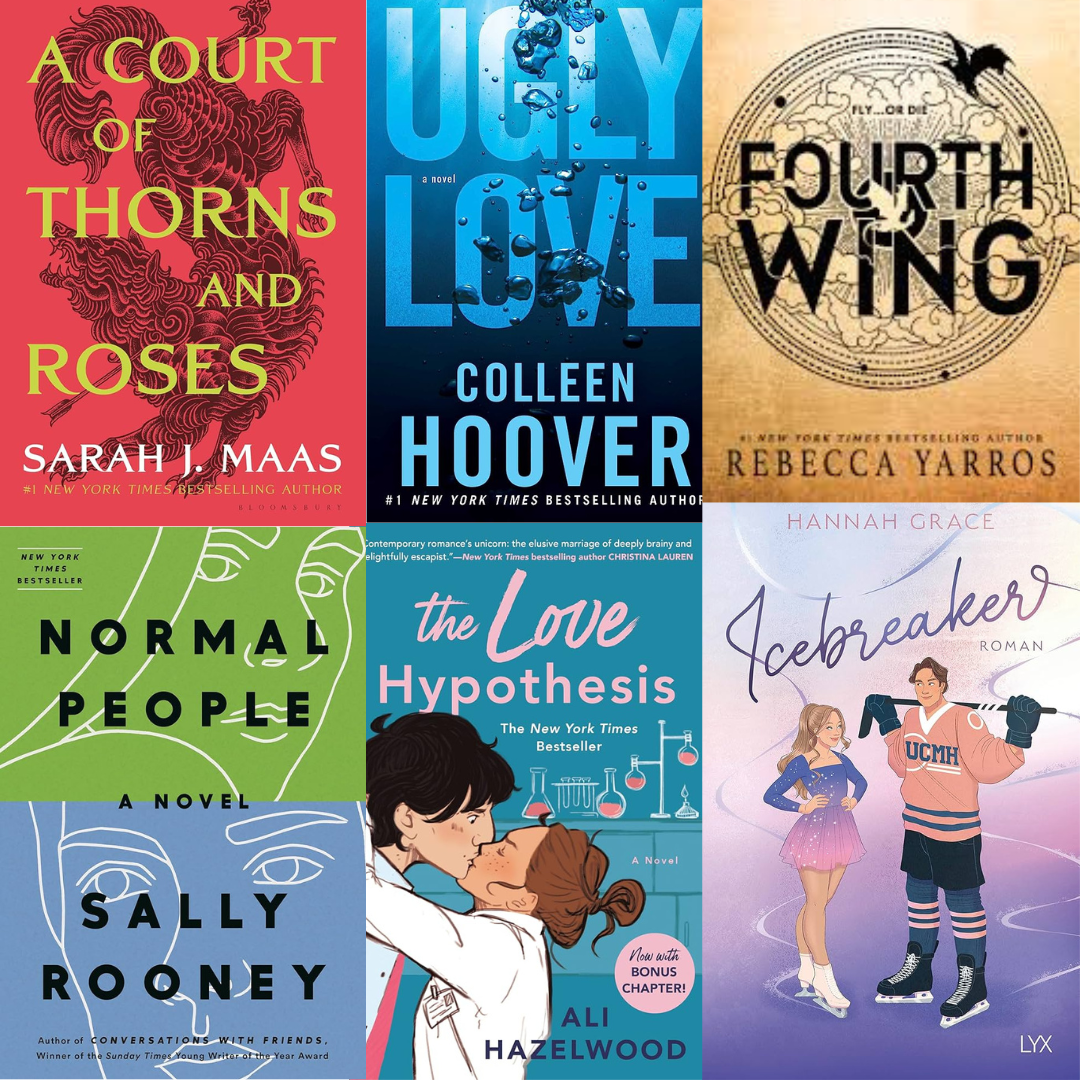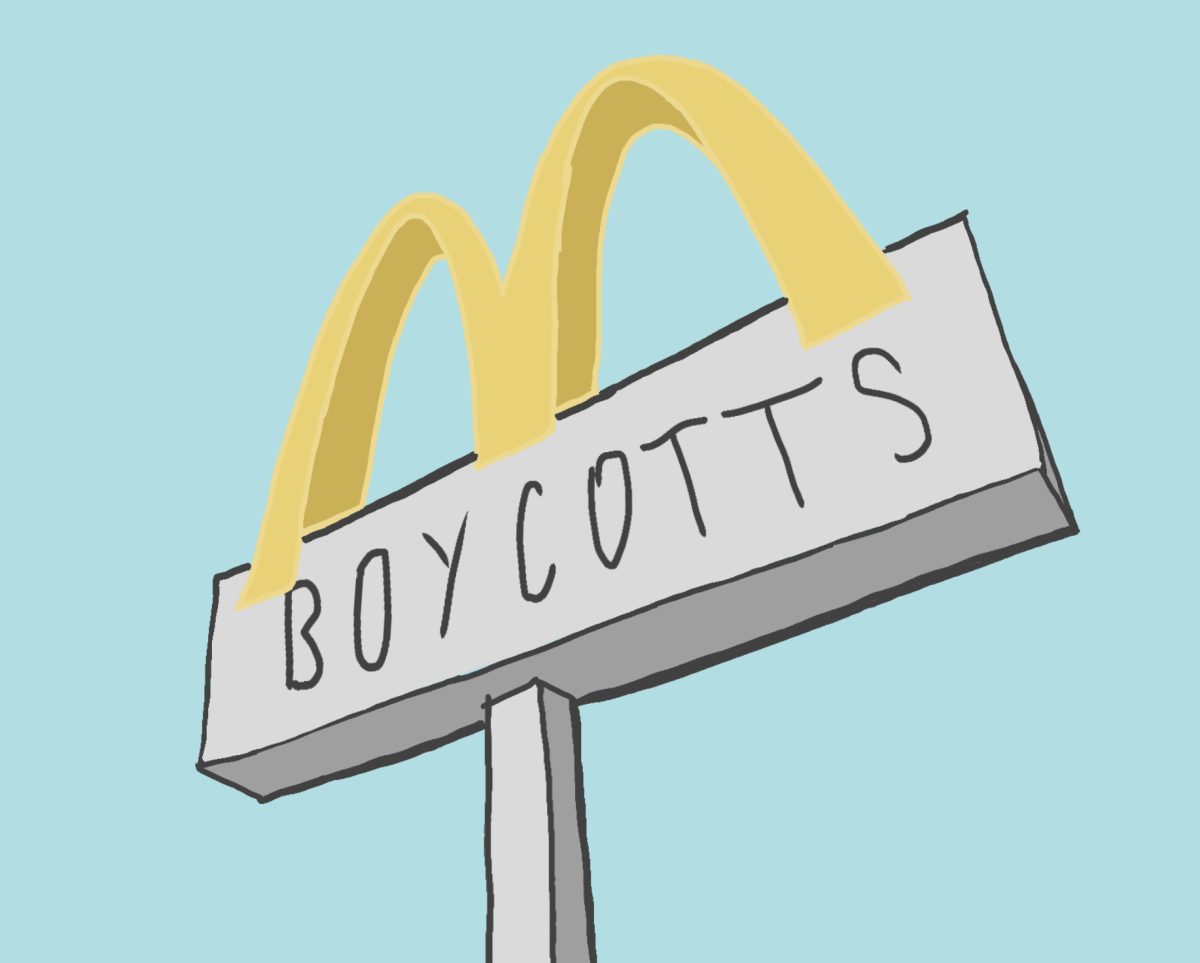People screamed as a bucket of rats painted in the Palestine flag colors were thrown into a McDonald’s. The rats, which were still alive, quickly scampered about, causing chaos among customers who were currently occupying the space. This hasn’t been the only recent protest at fast food restaurants either—stick insects were thrown into another McDonald’s, and a Starbucks window was shattered by masked hammer wielders. People all over the world, from the United States to the United Kingdom are taking violent stands against companies who have decided to speak their mind about the Israeli-Hamas conflict.
McDonald’s, Starbucks and Disney all displayed their thoughts regarding the battle, McDonald’s and Disney supporting Israel and Starbucks posting a pro-Palestine comment on their Workers United social media account. As more and more people turn to violence, or just doing something small such as not buying their daily mochas or fries, we can’t help but wonder—is it really going to affect these multi-million dollar companies? Why are people boycotting something if their purchase or anger won’t have a very large impact on the fast food companies income?
The reason behind the famous fast food places and the long lived animation studio being targeted in general is due to multiple reasons, but all come back to a main point: each supporting the Israeli-Hamas conflict in one way or another.
It all began when a McDonald’s in Israel said it would be supplying Israel soldiers and hospitals with free meals and nutrition. The others faced the same backlash after showing support for Israel or Palestine as well, Disney for donating millions of dollars to help Israel, and Starbucks for a comment on X saying they support Palestine.
After these events, people began boycotts. Boycotting can be defined as a cancellation from commercial, social, or political relations with a person, country or organization to protest against or punish them.
“Boycotts aim to alter how we as bystanders spend our money and choose to fund companies based on their politics; essentially the concept of voting with your dollar,” said Summit senior Avery Suriano, who is currently participating in the boycott against Starbucks and other companies. People have boycotted plenty of times before, and the rates of success in boycotts are always changing.
A few examples of successful boycotts include the 1955 Montgomery Bus Boycott, in which Rosa Parks refused to give up her bus seat to a white man; and a boycott that took place in North Carolina that intended to pass House Bill Two (otherwise known as the “bathroom bill”) that required transgender people to use the bathroom according to the sex on their birth certificate (which was canceled after rigorous boycotting from LGBTQ advocates). While these were successful, there have been plenty that weren’t, most of which flew under the radar due to the low effort put into them.
For example, in 2021 Chinese tennis star Peng Shuai accused a Communist Party Grandee of sexual assault and caused the Woman’s Tennis Association (WTA, which stemmed from America) to halt all tournaments in China. They asked for Shuai’s experience to be investigated fully and fairly, yet after barely any work and absolutely no investigation, they returned and began the tournament again.
Like in the case above, if a boycott is lacking a sustained effort and the people aren’t putting much work into keeping it alive, then it doesn’t last very long and the idea never takes hold. The WTA’s attempt at outlining sexual assault as an issue was exactly so, a good idea with barely any action. This is why being passionate and stubborn is key when boycotting. If it’s only a side thing, it’s not going to last long. Sustained boycotts are the most likely to make any change, and usually they last for a few years before accomplishing their goal. Though like the Montgomery Bus Boycott, usually what they’re standing for is something that needs to seriously be changed or protested.
While the Montgomery and bathroom bill boycotts ended up working, the one currently going on is against more than one multi-million dollar company. Will someone refusing to buy from these companies affect them?
No, probably not. What’s five dollars to a company that makes millions a year? While these boycotts may be affecting the environment and atmosphere of these companies, it’s not doing much to damage them.
Suriano, on the other hand, thinks differently.
“I do think that boycotts make a difference on multi-million dollar companies,” Suriano said. “When enough people believe in a movement and stop spending money at a place that they normally fund, the five to seven dollar coffees add up. Our money matters and we vote with it.”
Suriano brings up an interesting point and concept: the ability to vote with your money.
“I am 17 and I can’t vote yet and I have many friends who also can’t vote, but we can vote and show our voice with how we spend our money,” Suriano said. While she and her friends may not be able to vote until the next presidential election, they can make a difference with the money in their wallets.
She goes on to mention an app she uses when participating in boycotts called “Buycott” that she uses to see where the money used to buy the product goes.
“I can scan the barcode of products and see if they align with the values that I have,” Suriano says.
Buycott’s slogan, “Vote with your wallet,” seems to agree with Suriano’s point. In the app, you can join campaigns that support your ideals, and by scanning the barcodes on products, you can tell whether or not they agree with the things you advocate for. While the app costs money to buy, it might be worth it to be able to purchase items that support your opinions and beliefs.
In the end, it seems that boycotting, while sometimes not having enough stamina or support to gain what they really want, focuses more on just supporting one’s ideals. People are boycotting these large companies because they don’t agree with their stance in politics or society, even if their approaches may be severely violent and illegal. It may not make too much of a difference against their income, but change can come, and it’s important to understand what your purchases are supporting.




